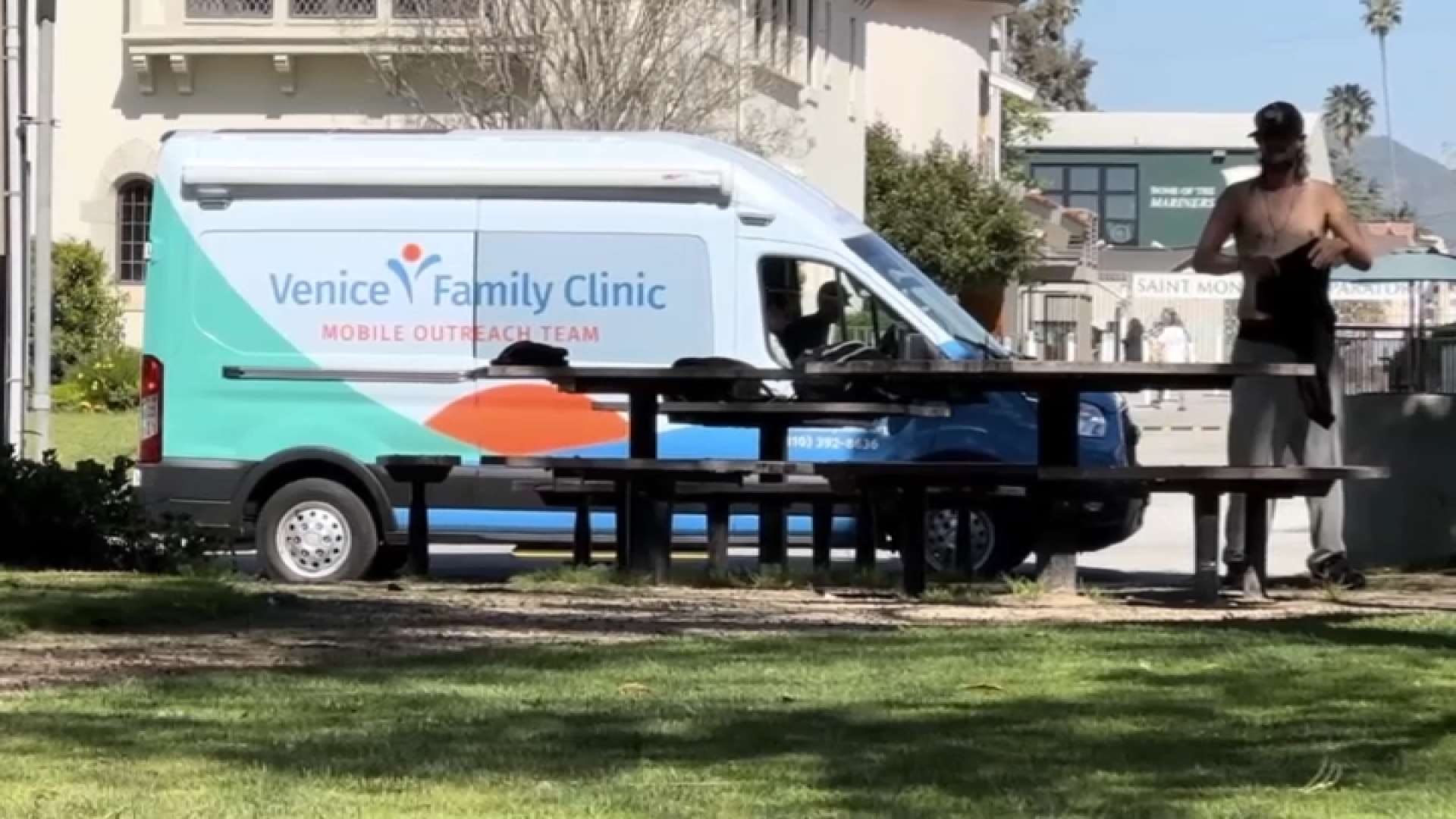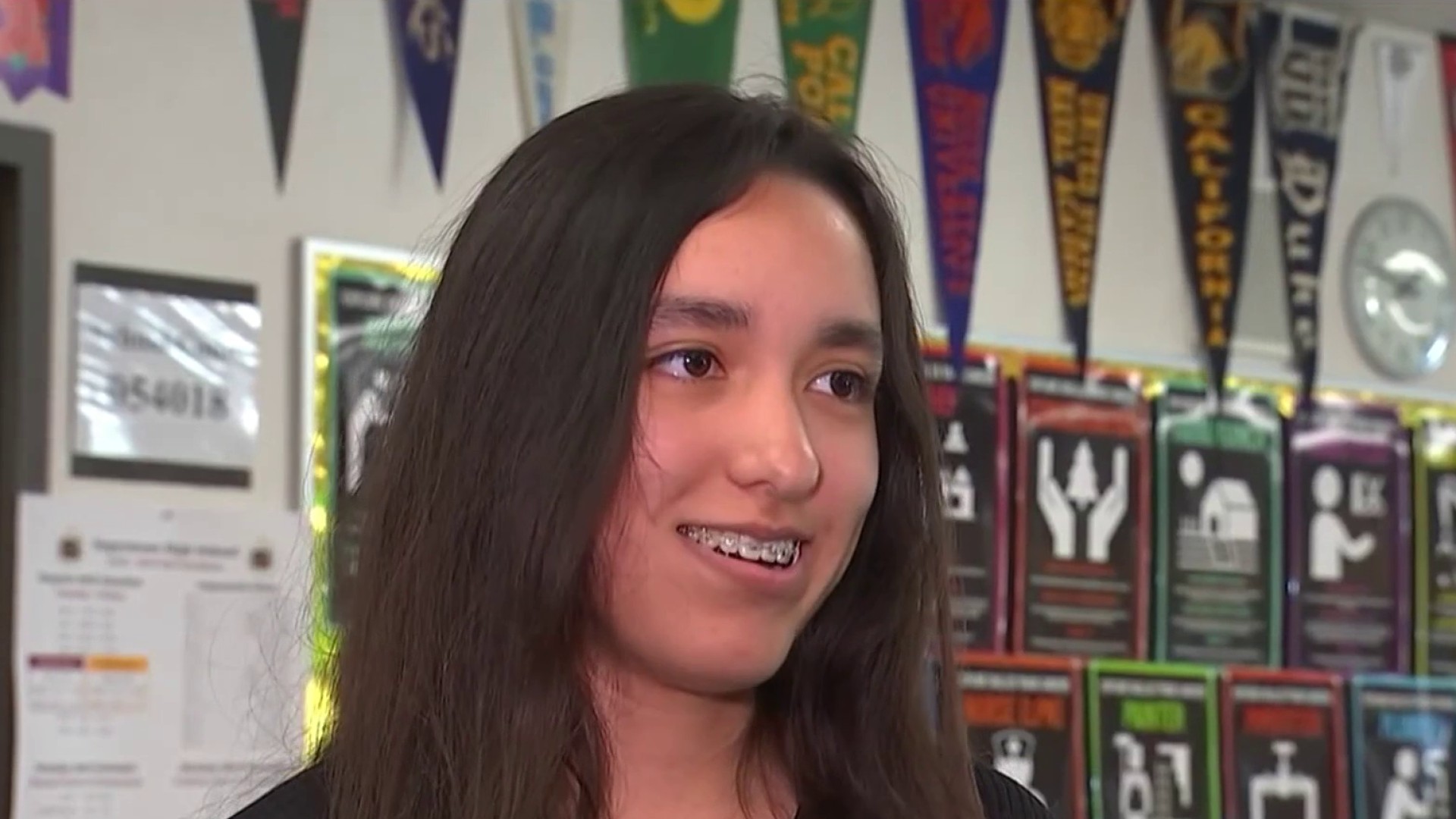When shots are fired in South Los Angeles, is there anyone around to see or hear them?
That's a question officers at the Los Angeles Police Department's 77th Division say digs deep into their minds every time they're called to a murder scene.
In South LA, the sounds of gunfire are an unfortunate reality. But for those who are personally affected by them, the sound of silence from potential witnesses is deafening.
In the latest case profiled for NBC4's "Seeking Justice in South LA" series, the example is evident.
In a June 2015 shooting on 115th Street and Menlo Avenue, 911 calls flooded into dispatchers and in each one of them, the dispatcher tries to get information from the caller about the shooter.
"What did he look like?" one of them asked, to which a female caller said, "A young black man, white T-shirt in a raised pickup truck."
But when the dispatcher tried to get more specific, communication started to get more labored.
"There's like 20 people and there's a guy shooting," the caller screams, then says, "I don't want them to know that it was me who called the police."
The dispatcher assures the caller they can remain anonymous and asks if anyone knows who the shooter was.
"All these people know who it was because they were calling his name, and they were like don't do it," the caller cries. But when the dispatcher asks what the name is, the caller goes silent.
Local
Get Los Angeles's latest local news on crime, entertainment, weather, schools, COVID, cost of living and more. Here's your go-to source for today's LA news.
"There are people who were there who know what happened, they know who did it and they're not coming forward," says LAPD South Bureau Criminal Gang Homicide Detective Patrick Flaherty. "They're afraid."
Flaherty arranged for NBC4 to speak with relatives and co-workers of 31-year-old victim Cherokee Parker in the hopes that renewed attention to the case could help solve it. But the day the interviews were supposed to happen, everyone backed out.
Parker lived and worked at a home on 115th Street that is also used as a day care. There was a birthday party for twin owners of the business the night Parker was killed. In the early hours of June 14, 2015, the party spilled outside where some witnesses tell officers a fight broke out and a man in a raised pickup truck arrived and began to randomly shoot into the crowd. One of the twins celebrating her birthday was shot in the leg and survived. She declined to be interviewed.
Parker was shot multiple times and died on a neighbor's driveway.
"This should've been solved within the first 48 hours, but it's not," Flaherty says. "We're coming into the 12th month of the investigation and it's not solved. People know who did it."
The apparent code of silence on South LA streets has left hundreds of families stricken with the unbearable pain of loss — with no answers as to why. Flaherty says he believes Parker was not the intended target of the shooter, but an unfortunate victim of the spray of bullets. And many more families will claim the same for their loved ones killed over the years in South LA.
Lawanda Hawkins was so distraught after the death of her only child at 19-years-old, that she started the nonprofit group, "Justice for Murdered Children."
"We have to let people know that your silence is a form of consent," Hawkins says. "And it's our community and we have to stand up and say Johnnie did it or whoever did these types of crimes."
Hawkins says the pain of losing her son has not faded, but rather, it has empowered her to call out her own community for the silence that litters the streets.
"You're allowing people to come into your community everyday and take people's life out of your community and you don't say nothing," she says. "Who's next? Who are you going to allow to be killed in the community next?"
But getting that message across in South LA is no easy task and strained relations with police and some members of the community doesn't help.
"Lack of cooperation with the police," says LAPD Detective Matthew Courtney. "People are scared of being viewed as snitches or cooperating as witnesses."
As NBC4 investigated the Cherokee Parker murder, there was an ironic twist in the location: directly across the street NBC4 had spoken with relatives of another young victim on South LA streets.
Cedric Horne, 24, was killed in October 2015, just a few months after Parker although in another part of South LA. His family lives on 115th Street.
"It don't really hit home until it hits home," says sister Crystal Horne.
The family says they remember the night Parker was killed — the gunfire that woke them from their slumber and the screams from neighbors who shouted the shooter's name. But these stories are only a fraction of others in South LA that are left with indescribable pain and unanswered questions about who murdered their relatives and why.
Larry McKay, 16, was killed in July of 2014. His mother Lakisha spoke with NBC4 about her daily pain.
"I miss my baby every day," she says. "Everyday I miss him.
Tawona Lee worked with the LAPD to hand out fliers asking for information after her 17-year-old son Bert Crump, Junior was shot and killed by a suspect on a bicycle.
Surveillance video shows the chase and Bert running for his life.
"Who is this person chasing my baby," Lee asks. "Is he still walking the streets after he took my baby's life? And nobody don't know nothing? Somebody has to know something."
The stories seem to have no end. Antonett Pasillas lost her daughter Candice Altamirano on South LA streets.
"My first born and my only daughter," she says.
Marsha Jone Shoushtari recalls finding her son, Bijan, in the emergency room after he was shot on Crenshaw Boulevard.
"His eyes were never opened," she says. "But he grabbed my fingers and he squeezed them and that was it."
Ray and Phyllis Fields lost their son Brandon, an up-and-coming musician being coached by well-known Snoop Dogg, also on the streets of South LA.
Brandon was just coming home from working at Harbor-UCLA Medical Center, in the middle of the afternoon.
"Somebody out there, they know," his father says.
And his mother, "Hopefully there will be a change one day. That no other family will have to sit before you and endure this pain."
But police say that while movements in South LA like "Black Lives Matter" have the ability to get a message across, they don't believe the community "received the memo."
Eddy Lewis, Sr. lost his son on the streets of South LA: a high school football coach who had just left a game in Pacific Palisades, only to be gunned down while sitting in his car outside a friend's home.
"People in those areas," Lewis says. "They have to be aware that for these things to stop, they gotta come forward."
Police say anyone with information on any of the cases profiled in NBC4's "Seeking Justice in South LA" series can call — even anonymously — to their main South LA office at 77th Division at 323-786-5100.



